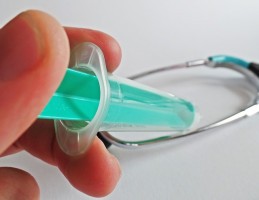
New research indicates that certain anti-cancer therapies may hasten cellular ageing, where changes in the DNA of patients may contribute to greater inflammation and fatigue. The findings are published by Wiley early online in CANCER, a peer-reviewed journal of the American Cancer Society.
Gene activity is often adjusted during life through epigenetic changes, or physical modifications to DNA that do not involve altering the underlying DNA sequence.
Some individuals may experience epigenetic age acceleration (EAA) that puts them at a higher risk of age-related conditions than other individuals of the same chronological age. Investigators recently examined EAA changes during and following cancer treatment, and they looked for a potential link between these changes and fatigue in patients with head and neck cancer (HNC).
In the study of 133 patients with HNC, half of the patients experienced severe fatigue at some point. EAA was most prominent immediately after radiation therapy, when the average epigenetic age was accelerated by 4.9 years. Increased EAA was associated with elevated fatigue, and patients with severe fatigue experienced 3.1 years higher EAA than those with low fatigue.
Also, patients with high levels of markers of inflammation exhibited approximately 5 years higher EAA, and inflammation appeared to account for most of the effects of EAA on fatigue.
"Our findings add to the body of evidence suggesting that long-term toxicity and possibly increased mortality incurred from anti-cancer treatments for patients with HNC may be related to increased EAA and its association with inflammation," said lead author Canhua Xiao, PhD, RN, FAAN, of the Emory University School of Nursing, in Atlanta.
"Future studies could examine the vulnerabilities that may account for sustained high EAA, fatigue, and inflammation among patients."
The authors noted that interventions to reduce inflammation, including prior to cancer treatment, might benefit patients by decelerating the ageing process and subsequently reducing age-related chronic health problems such as fatigue.
An accompanying editorial stresses that chronic fatigue in patients receiving treatment for cancer is not just a symptom; it may also play an important role in influencing patients' health.
Source: WILEY
The World Cancer Declaration recognises that to make major reductions in premature deaths, innovative education and training opportunities for healthcare workers in all disciplines of cancer control need to improve significantly.
ecancer plays a critical part in improving access to education for medical professionals.
Every day we help doctors, nurses, patients and their advocates to further their knowledge and improve the quality of care. Please make a donation to support our ongoing work.
Thank you for your support.